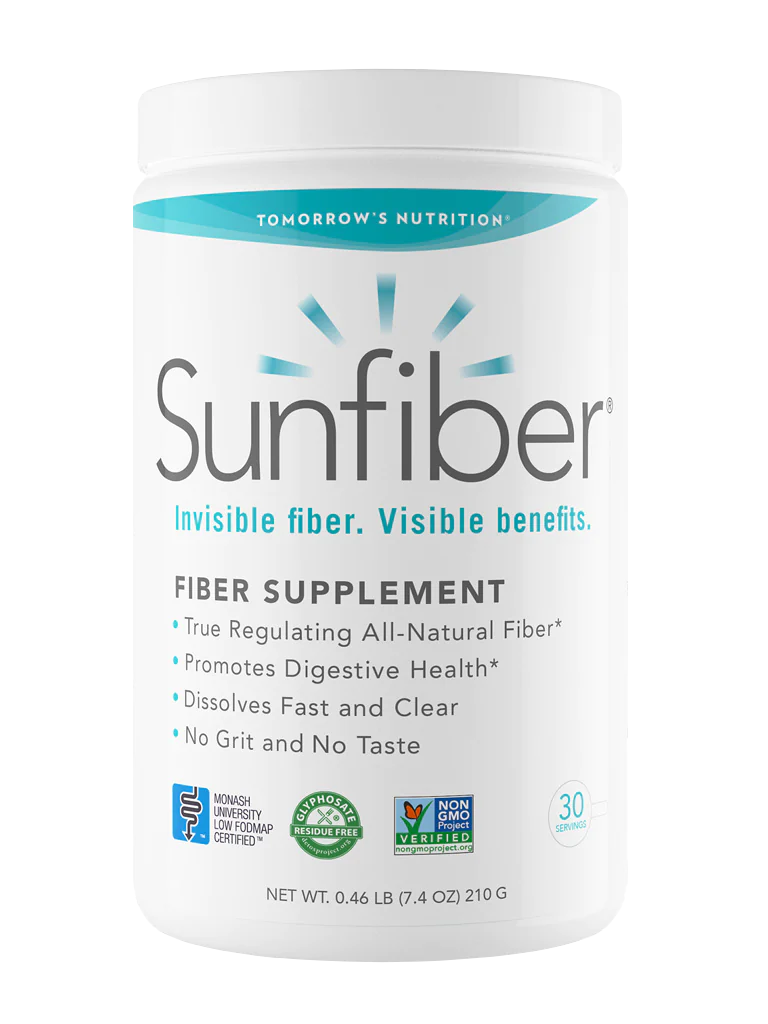Fiber Supplements for Constipation: Your Best Options

✓ Expert Review by:
Derek Timm, PhD, RDN
Constipation is a widespread problem. Nearly all of us experience it at one time or another. Constipation can really put a damper on your quality of life. In addition to spending more time in the bathroom straining to go, it can cause headaches, bloating, stomach pains and embarrassing gas, even hemorrhoids. That probably doesn’t make you the happiest person in the room!
A safe and effective fiber supplement for constipation may be your best option.
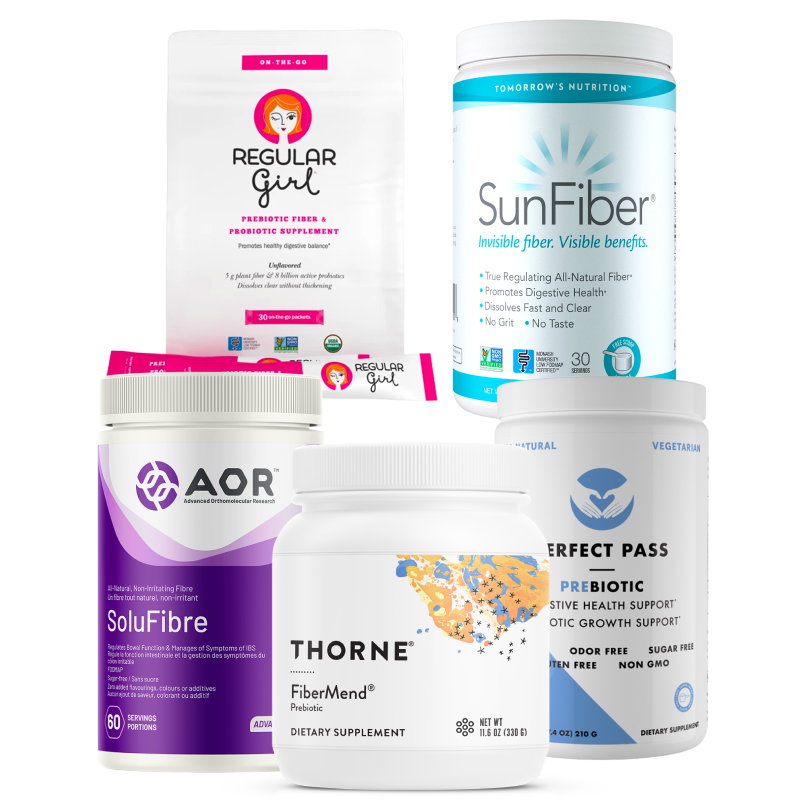
Jump to Section
What is Constipation?
Constipation is generally characterized by uncomfortable, hard, small, difficult to pass and infrequent bowel movements. It happens when stool moves too slowly through the colon. This gives the colon time to absorb too much water, causing stool to become dry, hard and more difficult to pass.
What is Dietary Fiber?
Dietary fiber is the indigestible part of plants. It provides optimal health. As important, it provides bulk to help soften stool and regulate its transit time through the colon. High-fiber foods include fruits, vegetables, beans/legumes, seeds, nuts and whole grains.
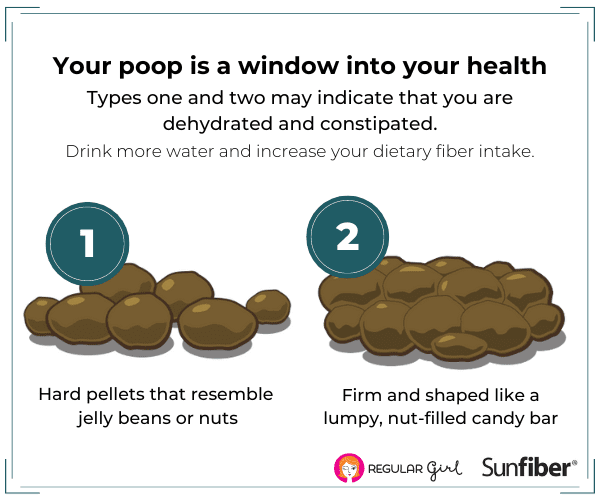
The Two Main Types of Fiber
There are two types of fiber: insoluble and soluble. Both can help keep you regular.
Insoluble fiber doesn’t dissolve in water. It absorbs water to add bulk and help move the stool more easily through the digestive tract.
Soluble fiber dissolves or forms a gel with water. It can help slow the rate the food is released by the stomach, which can help you feel full longer. It also nourishes the good bacteria (probiotics) in your digestive system and helps you better absorb some minerals from your diet. Soluble prebiotic fiber contributes to a healthy gut microbiome.
Both soluble and insoluble fiber can help you manage occasional constipation.
How Fiber Helps Constipation
When you’re experiencing occasional constipation, good nutrition is a good place to start. Fiber-rich foods and adequate fluids are essential for a healthy digestive system including regular bowel movements.
Be sure your diet includes plenty of fresh vegetables, fruits, beans and other high-fiber foods. Sip water throughout the day, not just when you’re thirsty.
In addition to dehydration and lack of fiber, other common causes of constipation include:
- Lack of exercise
- Certain medications
- A change in routine
When considering a fiber supplement for constipation, there are several different active ingredients on the market including psyllium powder, methylcellulose, inulin and guar fiber. Some fiber supplements may add to feelings of bloating, cramping and increased gas production, especially if your body is unaccustomed to getting sufficient dietary fiber. Those unwanted side effects are much less likely to happen with some dietary fiber supplements, such as guar fiber.
When is the best time to take fiber supplements?
Although fiber supplements can be taken at any time of day, you may want to take it with a meal to maximize its satiety and glycemic control benefits.
When do fiber supplements work for relieving constipation?
If you suspect your constipation is probably due to diet, dehydration or perhaps a change in routine (traveler’s constipation is a real thing!), then taking a fiber supplement for a few weeks may provide you with relief.
If however, your constipation doesn’t resolve after taking dietary fiber supplement or you have other symptoms including blood in your stool, consult your physician or other healthcare provider.
Best Fiber Supplements for Constipation or IBS
The best fiber supplement for constipation is one that works for you and your lifestyle. Some fibers that are easy to incorporate into your daily routine, and that are unlikely to cause unwanted side effects:
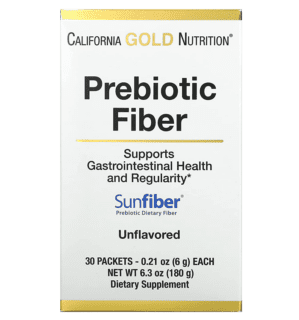
Formulated without gluten, GMOs, or soy, it supports gastrointestinal health and regularity.
+ Prebiotics | + Gluten Free | + Vegan
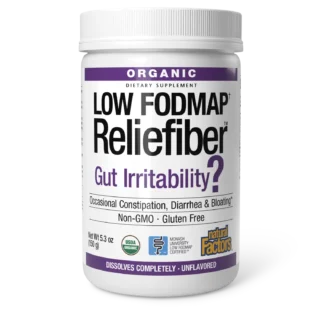
Vegetarian Reliefiber is a certified organic and low-FODMAP fiber supplement that helps promote bowel regularity and health.* + Certified Organic | + Low FODMAP | + Flavor or Flavorless
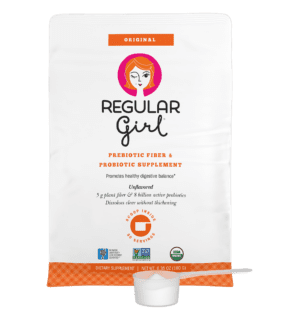
This organic powder is a tasteless, odorless, and colorless synbiotic blend of clinically proven prebiotic fiber and probiotics to help promote healthy digestive balance.* + Highly Rated | + Non GMO | + No taste
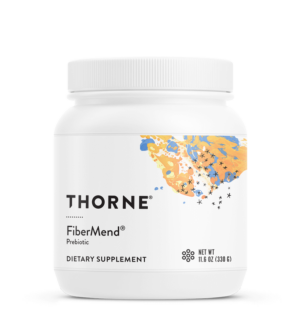
The soluble fiber blend is well tolerated and produces little to no bloating, cramping or gas.*
+ Minimal Side Effects | + No added sweeteners | + Mixes easily
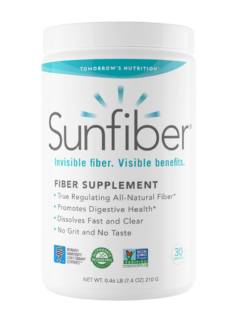
This promotes intestinal and colon health, aids in the transit of food through the intestines, and helps control the glycemic index of foods.* + Highly Rated | + Low cost | + Low FODMAP
How We Chose Our Favorite Fiber Supplements
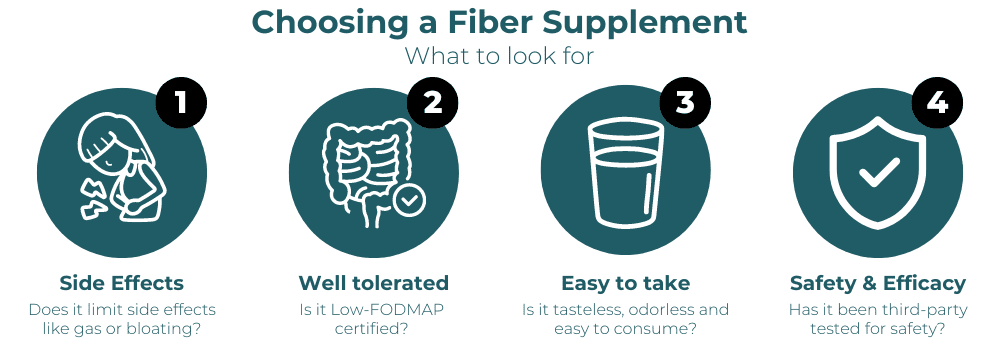
When considering fiber supplements for this list, some factors included:
Will frequent consumption of this dietary fiber lead to unwanted side effects?
Some common fiber supplements may cause additional gas or bloating, especially if they are not introduced gradually. Others may trigger diarrhea. We chose fiber supplements made with guar fiber, which is not associated with these side effects.
Is this fiber supplement well tolerated by those diagnosed with irritable bowel syndrome (IBS)?
This was an important factor because some people may experience a worsening of IBS symptoms after taking a fiber supplement. This is unlikely to happen with our favorite fiber supplements because they contain guar fiber, which is certified Low-FODMAP.
Is this fiber supplement easy to take?
Yes! Each of our favorites is tasteless, colorless and odorless. They are 100% water soluble and can easily be blended into most beverages and foods.
Has this fiber supplement been third-party tested for safety and efficacy?
The primary ingredient in each of our favorite fiber supplements, guar fiber, is clinically shown to be effective at regulating occasional constipation as well as occasional diarrhea. It is also Informed Ingredient Certified. Some products containing guar fiber are also Clean Label Project certified. Guar fiber was affirmed as GRAS (Generally Regarded as Safe) by an expert panel. And it is approved as a fiber source by Health Canada and other countries.
Do fiber supplements cause bloating?
Some common fiber supplements are associated with increased bloating. This is not the case with fiber supplements containing Sunfiber.
Sunfiber for Constipation
Sunfiber is a truly regulating soluble fiber that helps to normalize the digestive system. It is clinically shown to be effective at helping occasional diarrhea and occasional constipation. Sunfiber is an excellent prebiotic for promoting digestive health and microflora balance. It is tasteless, colorless, odorless, gluten free, and 100% water-soluble.
Sunfiber starts with natural guar beans which are grown in fields that are not treated with chemicals. No preservatives are used or added during manufacturing. It is certified Kosher, Halal, vegetarian (not of any animal origin nor derivative), Non-GMO Project Verified and certified glyphosate residue free. All raw materials are kept free from GMOs and their derivatives throughout the production process.
Sunfiber qualifies as an organic material and is 100% gluten free. It is certified Informed Ingredient, indicating that it is routinely tested for a wide range of prohibited substances, and therefore safe to be used by athletes without concerns of adulteration or contamination.
Learn More About Using Fiber Supplements for Constipation
Discover more about using fiber supplements for constipation.
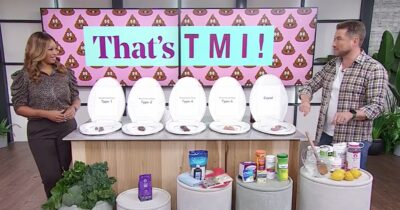
What these 5 different types of poop say about your health

Summer constipation is a real thing

How to avoid GI issues while traveling
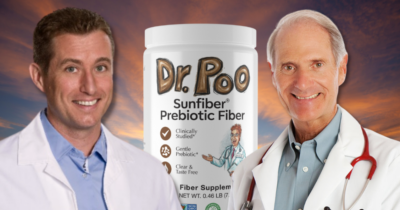
An interview with the real “Dr. Poo” about kids, fiber and regularity

What your gut says about your stress level
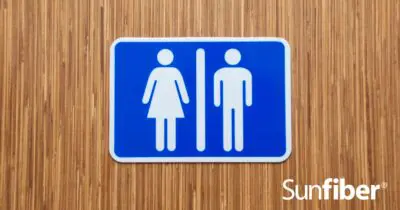
Try these eight ideas before considering chemical laxatives

What to do when your stomach isn’t a pizza fan
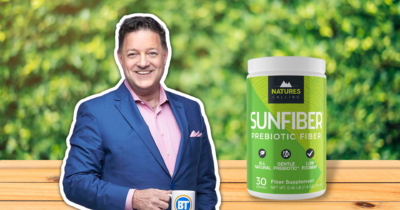
Nature’s Calling Sunfiber highlighted in high-profile men’s health series
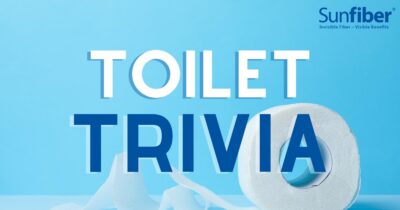
Ten bits of toilet trivia you should know

Halloween can be the start of ‘constipation’ season

Water and Fiber: How to address two common digestive shortfalls at once

The scoop on your poop
Final Thoughts About Fiber Supplements for Constipation
Everyone experiences constipation at one time or another. It is often a sign of not having enough fiber in your diet. To help your digestive system get regular, your first step is to increase your consumption of high-fiber foods such as fresh fruits and vegetables, whole grains, beans and legumes. Also make sure you are well hydrated because water helps support regularity.
If you decide to try using a fiber supplement, choose one that has been clinically proven to be safe and effective, and will suit your lifestyle. Some common fiber supplements for constipation may increase gas and bloating, while others — such as guar fiber — are not associated with these unwanted side effects.
Natural Sunfiber, made from guar fiber, is well tolerated, extensively researched and easy to use. It is tasteless, colorless, odorless, gluten free, and 100% water-soluble. It is certified Kosher, Halal, vegetarian (not of any animal origin nor derivative), Non-GMO Project Verified and certified glyphosate residue free.

